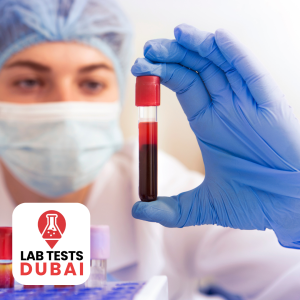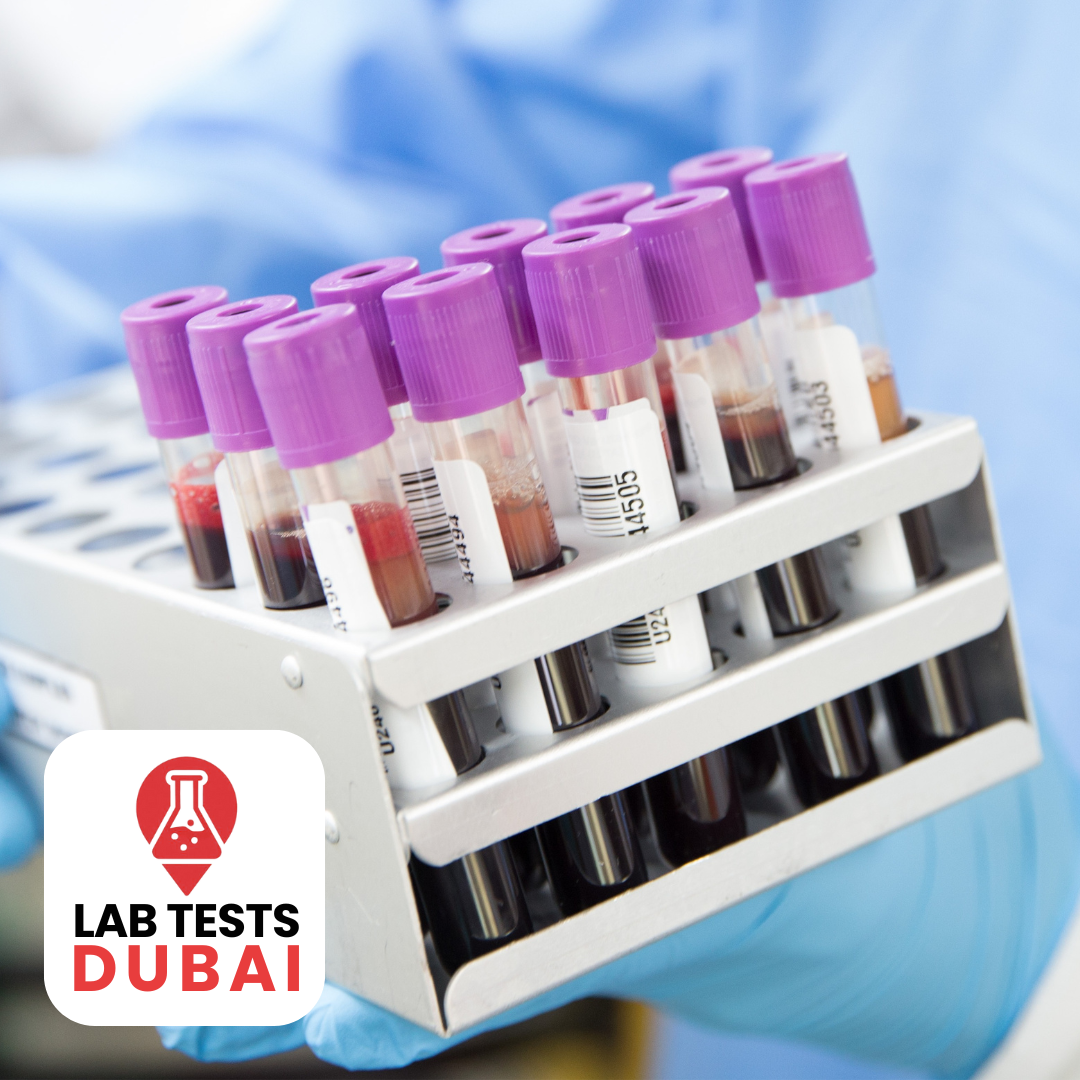Amniotic Fluid Karyotype Test – Prenatal Chromosomal Analysis for Genetic Disorders
2.150,00 د.إ
The Amniotic Fluid Karyotype Test detects chromosomal abnormalities like Down syndrome. Accurate results in 30 days. Book your prenatal test with Lab Tests Dubai.
Sample Type : Amiotic Fluid
Methodology : Conventional Cytogenetics: Culture + Chromosome analysis
TAT : 30 Days
Description
Chromosomal Studies – Amniotic Fluid Karyotype Test
The Chromosomal Studies – Amniotic Fluid Karyotype test is a specialized diagnostic tool designed to analyze the chromosomal structure of a developing fetus. By examining the amniotic fluid, this test identifies chromosomal abnormalities that may lead to genetic disorders or developmental issues. It is a critical test for expectant parents seeking clarity on their baby’s health and is often recommended during pregnancy when there is a higher risk of genetic conditions.
Why You Need This Test
The Amniotic Fluid Karyotype Test is a vital component of advanced prenatal care, offering expectant parents critical insights into their baby’s genetic health. This test analyzes fetal chromosomes using cells collected from the amniotic fluid to detect major chromosomal abnormalities such as:
- Down Syndrome (Trisomy 21)
- Edwards Syndrome (Trisomy 18)
- Patau Syndrome (Trisomy 13)
- Turner Syndrome (Monosomy X)
- Other structural or numerical chromosomal disorders
It is especially recommended for pregnancies with increased risk factors, including advanced maternal age (35+), abnormal screening results, family history of genetic conditions , or ultrasound-detected fetal anomalies .
By identifying potential issues early, this test empowers healthcare providers and families to make informed decisions about care, interventions, and long-term planning.
 Symptoms That Indicate This Test
Symptoms That Indicate This Test
While there are no direct symptoms in the mother, the following risk indicators may prompt a doctor to recommend the Amniotic Fluid Karyotype Test :
- Maternal age of 35 years or older at delivery
- Abnormal findings on first or second-trimester screening tests (e.g., NIPT, quad screen)
- Structural abnormalities seen during routine ultrasound
- Previous child or pregnancy with a chromosomal abnormality
- History of recurrent miscarriages
- Known family history of genetic disorders
If any of these apply, your doctor may suggest amniocentesis followed by karyotype analysis for definitive diagnosis.
Natural Production
During pregnancy, the fetus is surrounded by amniotic fluid , which contains fetal cells shed from the skin, urinary tract, and lungs. These cells carry the baby’s complete genetic material, making them ideal for chromosomal analysis.
The Amniotic Fluid Karyotype Test uses a small sample of this fluid—collected via amniocentesis —to culture cells and examine the number and structure of chromosomes under a microscope.
This natural shedding process ensures that the test provides an accurate representation of the baby’s genetic makeup.
What Happens If Untreated
Without timely testing, chromosomal abnormalities may go undetected until birth—or even later—leading to:
- Unpreparedness for special medical needs
- Delayed access to early intervention therapies
- Emotional and financial strain on families
- Increased risk of complications during pregnancy or delivery
Early detection through the Amniotic Fluid Karyotype Test allows for:
- Better prenatal management
- Access to pediatric specialists before birth
- Informed decision-making regarding pregnancy care
- Peace of mind for low-risk cases
How to Prepare for the Test
Preparation is minimal, but important:
- The test is typically performed between weeks 15 and 20 of pregnancy.
- No fasting or special diet is required.
- Wear comfortable clothing for your clinic visit.
- Inform your doctor about all medications you’re taking.
- Discuss risks, benefits, and concerns with your obstetrician or genetic counselor before proceeding.
The procedure involves ultrasound-guided amniocentesis : a thin needle is inserted through the abdomen to collect a small amount of amniotic fluid. It’s generally safe, with a low risk of complications when performed by experienced professionals.
Test Overview
– Sample Type: Amniotic Fluid
– Methodology: Conventional Cytogenetics: Culture + Chromosome analysis
– Turnaround Time (TAT): 30 Days
The test involves culturing fetal cells from the amniotic fluid and analyzing their chromosomal structure under a microscope. This detailed analysis provides a comprehensive view of the fetus’s genetic health.
Take control of your pregnancy journey with the Chromosomal Studies – Amniotic Fluid Karyotype test. Early detection of chromosomal abnormalities can make a significant difference in planning for your baby’s health and well-being. Book your lab test today to gain peace of mind and ensure the best possible care for your growing family.
Ensure your pregnancy journey is guided by clarity and confidence. The Amniotic Fluid Karyotype Test offers one of the most accurate methods for detecting fetal chromosomal disorders—giving you time to plan, prepare, and protect your baby’s future.
👉 Book your Amniotic Fluid Karyotype Test with Lab Tests Dubai today and receive expert support throughout the process—from sample collection to result interpretation.





Reviews
There are no reviews yet.